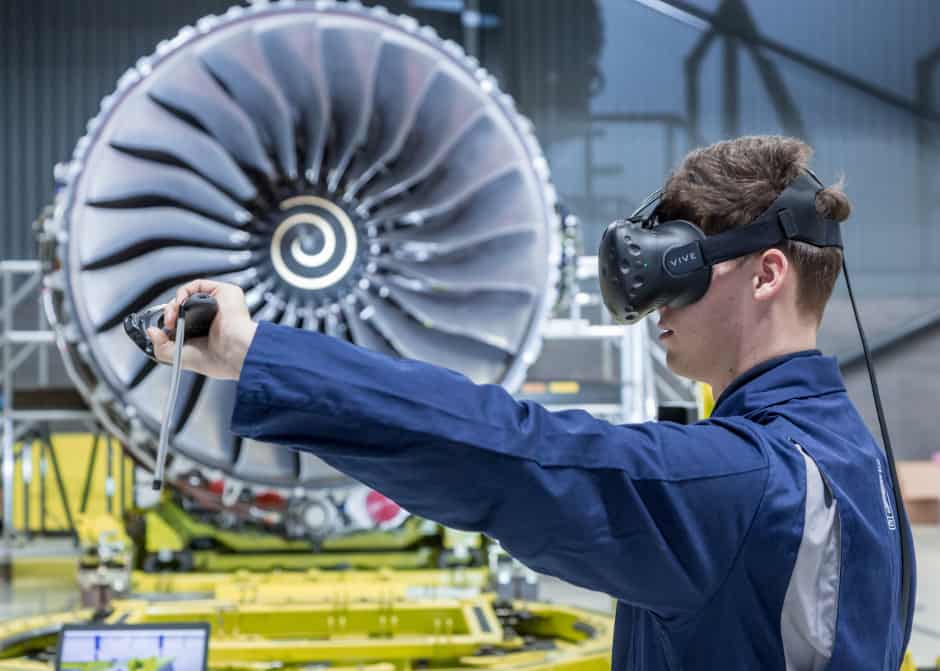
With the number of air passengers expected to almost double by 2036, airlines need to be able to train an increasing number of engineers to maintain and repair their aircraft and engines.
To this end, Rolls-Royce is investigating ways to include virtual reality (VR) in its engineering training programmes, as part of its IntelligentEngine vision.
In a trial of the technology, engineers with Qatar Airways received VR training on Rolls-Royce’s Trent XWB engine, according to Stuart Moss, an IT innovation strategist at Rolls-Royce, who worked on the project.
The Trent XWB is so large that it must be separated before engineers can transport it for maintenance and repair, said Moss. “This process takes a couple of days, to ensure that you can put it back together again in exactly the same alignment.”
Engineers will often receive training in how to carry out this complex task a few years before they have to do it in practice. So the team decided to use VR as a way to offer them a refresher course in the technique.
Using HTC Vive VR equipment, the engineers were immersed in the process, using sight, sound and touch to separate the two parts of the engine in a virtual setting.
“We developed a fully-immersive VR version of the engine,” said Moss. “In fact, everything that you can do in real life is remodelled in the engine, so you can take the engine to pieces and re-do the entire training course in VR.”
Previously, an engine would have been transported to Doha to be used for the training, or alternatively Qatar Airways would have provided an engine in service, with the risk of damage to equipment and the loss of valuable flying time.
“We can now send a member of our training team with a VR kit in a pack that fits into an overhead locker on an aircraft,” said Moss.
Rolls-Royce is also investigating the use of engine holograms within classrooms, and Augmented Reality to overlay technical information over real engines.
CLICK FOR NEWS




Report highlights significant impact of manufacturing on UK economy
Note to Evil Villain/Dave 2020. Thatcher was PM for _11_ years, from 1979 to 1990 so no one under the age of 34 was even born when she left office....